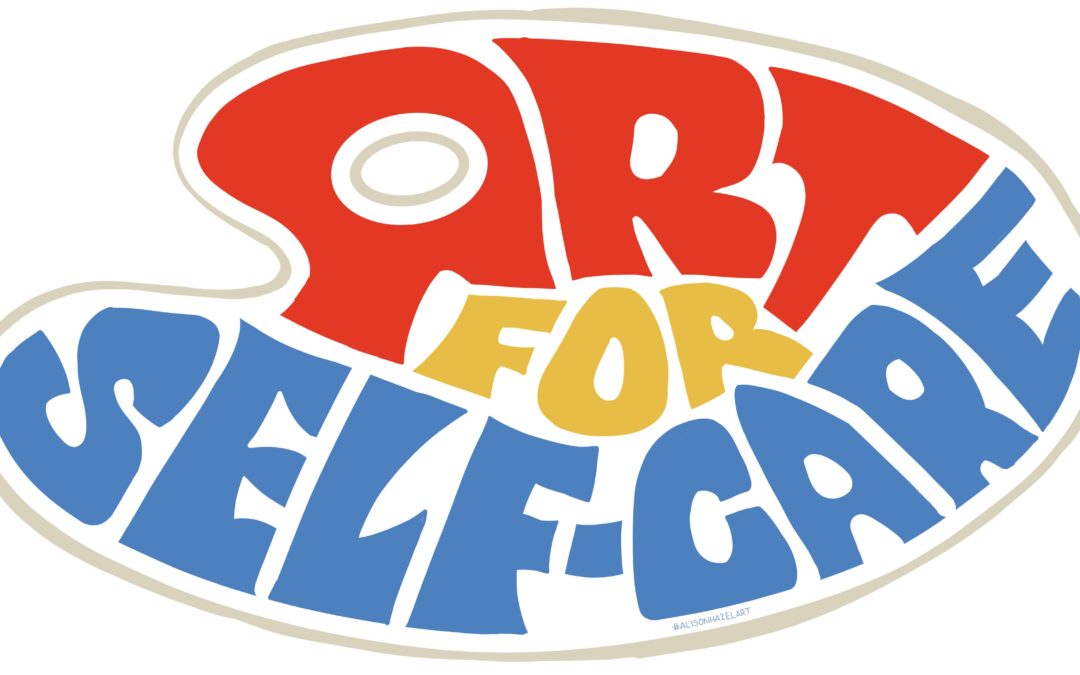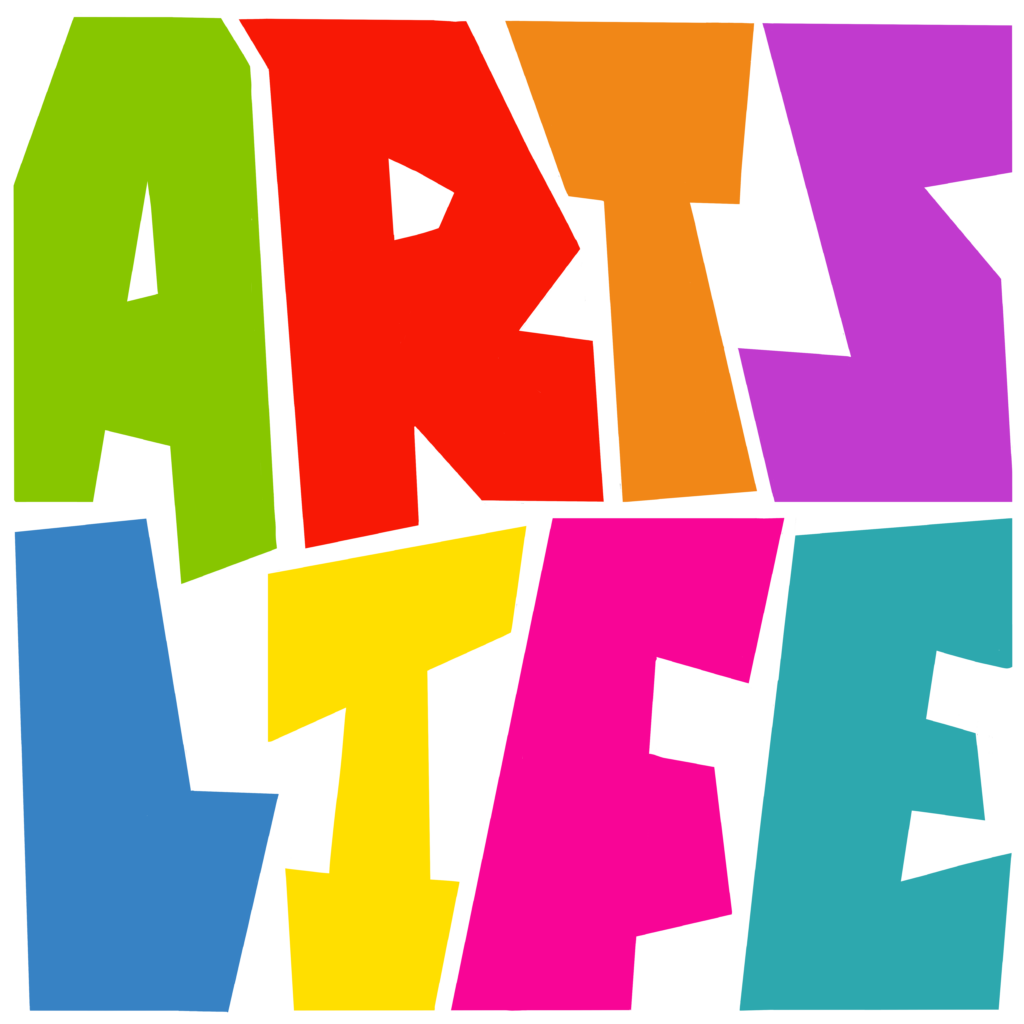Art as Self-care
The use of art as self-care is well documented. Art can be therapeutic and many people say this is true. In a busy digital world, there is an urge to disengage from text-based connections with others. Drawing and sketching may help bring balance to the input your brain gets every day.
Healing
Personally, I turned to art at a time in my life when I could not deal with another conversation as I seemed to be going around in circles with the issue at the time. I’d wake up and immediately start ruminating about what happened yesterday and replay conversations and situations in my head. I would think, “I should have said this or that” or “I should have done things differently.” There was no let up. I became weary and tired.
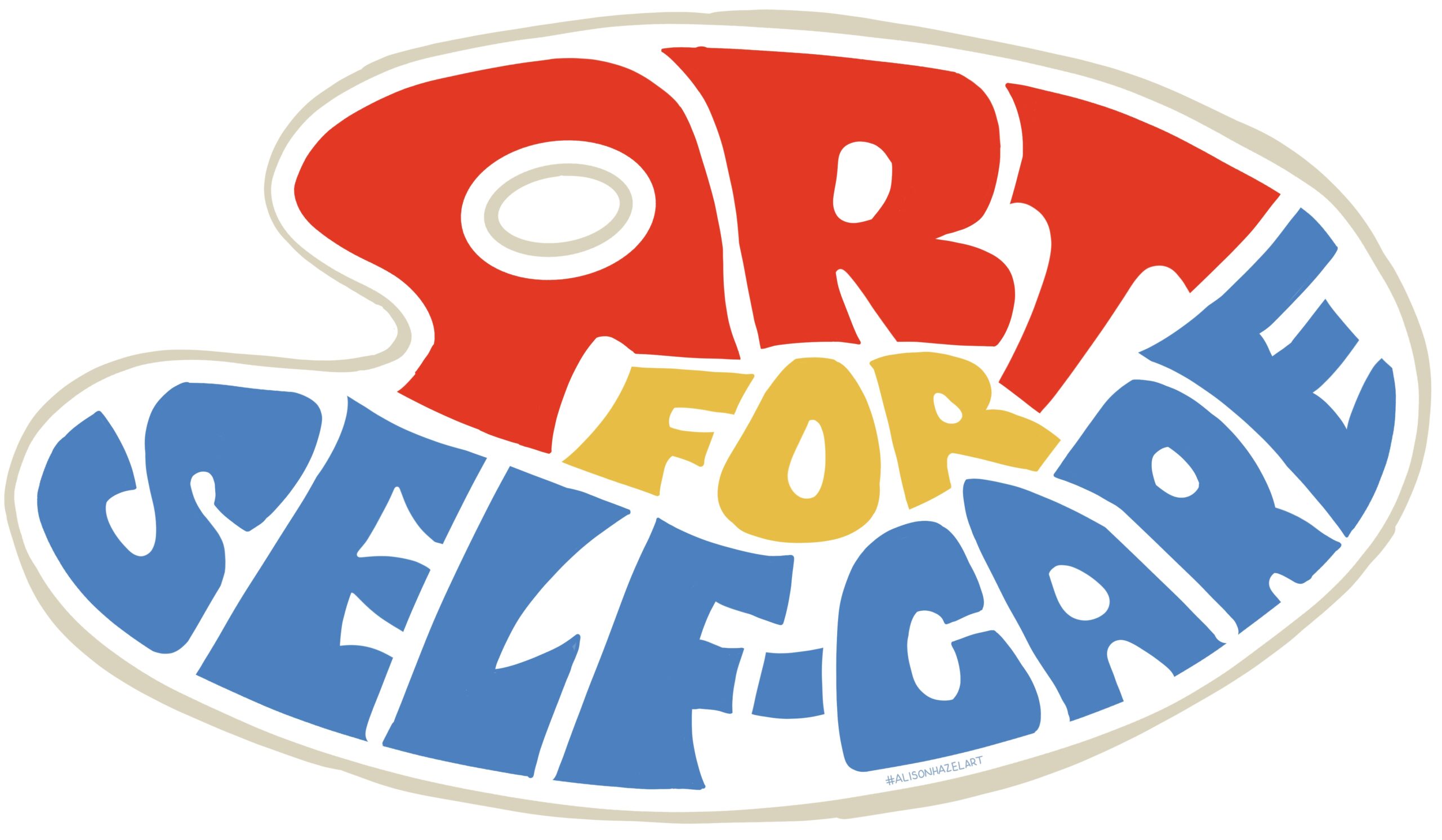
Art Journaling
I turned to my art journal and began again. I now write my thoughts on the right-hand page and draw a corresponding picture on the left-hand page. I am right-handed so it’s easier to write on the right-hand page and usually there is more paper underneath to support the pen. We used to do this type of work in grade school way back where it is still used as a learning aid.
Memory
You remember things better if you hear them, write notes about then and draw an image about them. Clearly you can go further and make a model out of cardboard or macaroni, dance it out, pen a poem, write song lyrics, sing about it or do a play.
Write and Draw
Let’s keep to the writing and the drawing. Words and image. Make notes and draw a picture about it. This technique is a basis of art journaling.
Aspiring Artist Activity
Art Journaling – Coffee Shop
Take your art journal, a pen and go to a coffee shop. Get a cup of coffee and settle down at a table.
In your art journal please do the following:
- Write the time, date and the place where you are enjoying the delicious coffee.
- Then sketch the cup and maybe the people at the other tables or add the coffee shop name and logo to the sketch.
- If you have a croissant or other pastry, draw that too.
- You can add as much or as little to your journal spread as you like.
- Write the time and the date.
You have now completed your first art journaling sketchbook entry.
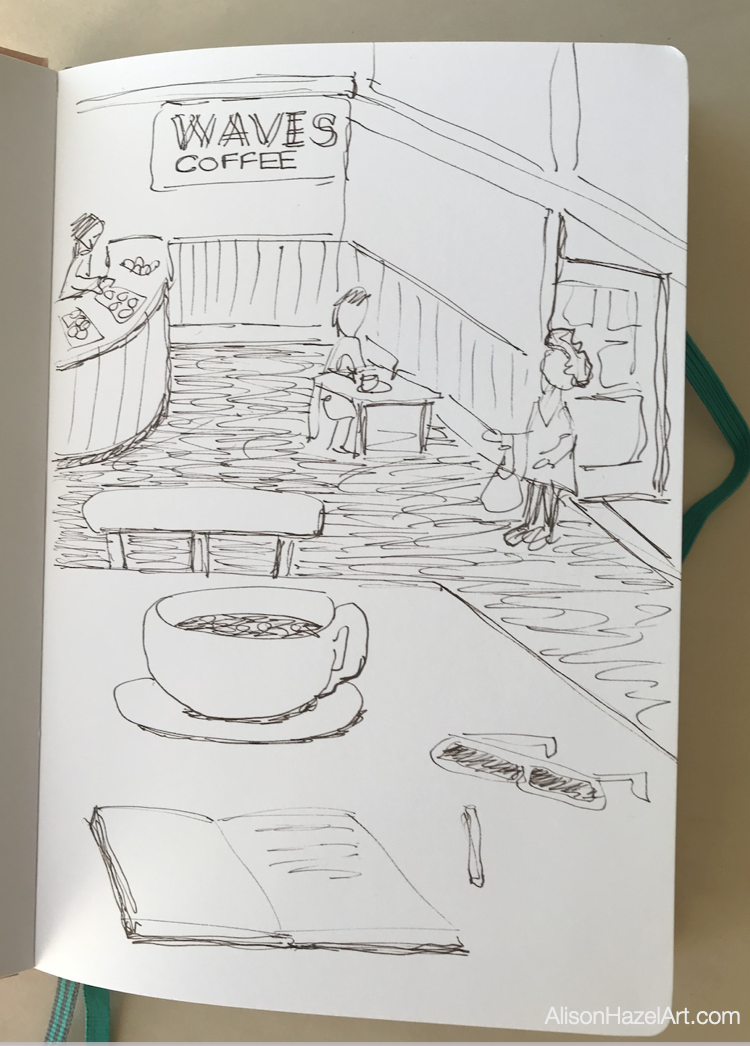
Doodling
Doodling is the act of drawing squiggles and mini shapes and characters on the corner of a page. It is what you do when they put you on hold on a phone call with your pen in hand. Doodling can be lines, curves, faces or whatever. But it is a outpouring of what’s on your mind and in this way it can be helpful.
Daily Art Practice
If you look carefully, you can eke out a quarter of an hour each day for your daily art practice. Fifteen minutes of drawing daily can soothe your mind.
Draw Your Day
For my daily art practice, I have a special small A5 sketchbook just for my quick daily art drawings. These sketches are unlikely to ever see the light of day, but they can often be the basis for later more complex drawings that I create. I like the idea of letting sketches incubate until they turn into something else. Simple objects around you are great subjects to draw.
Benefits of Daily Art Practice
To establish a daily art practice is of huge benefit for several reasons:
- You get to improve your art.
- You express your innermost feelings
- You can express yourself through words and images
- You can begin to create a body of work
- You may realise what your favorite art medium is
- You initiate the foundation of your art style
Daily Art Practice Examples
Here are some examples I did of daily art practice with pencil sketches of flowers:
- Nasturtiums
- Orchid
- African Violets
- Almond blossoms
Breath Drawing
Breathing, we all do it, in and out, in and out, in and out… Regular breathing tends to be shallow and has the same count for in and out. You breathe in for a count of three and out for a count of three. Inhale one, two, three and exhale one, two, three. This is natural breathing.
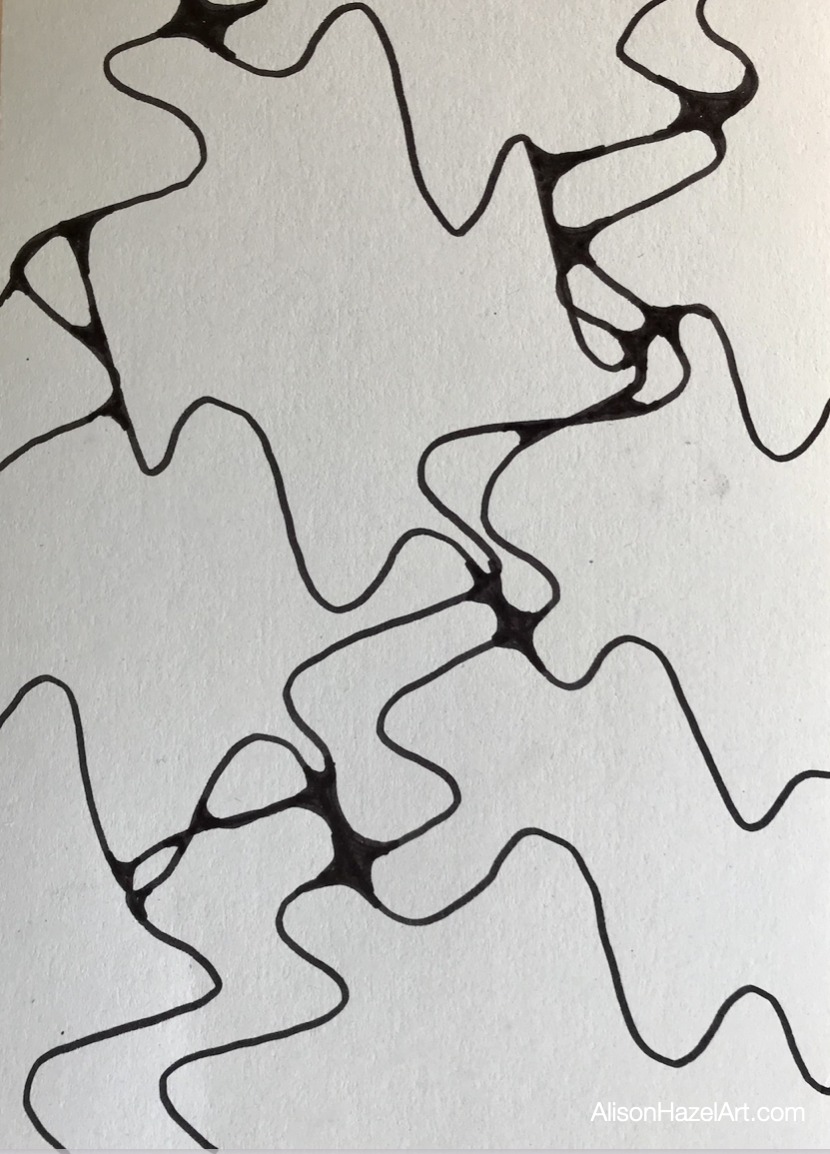
Controlled Breath Activity
A controlled breath helps to calm the mind and reduces blood pressure.
Breathe
Try this activity and the trick is to control your exhale.
- Breathe in fully for a count of three, and out fully for a count of five.
- In one, two, three and out one, two, three, four, five.
- Fully empty your lungs in a slow controlled exhale.
Draw
On your paper and with a pen.
- Start at the left-hand edge and draw a line up when you breathe in
- Draw a line down as you breathe out
- Continue across the page
- Turn the page one quarter turn and repeat the line
- Continue filing up the page with your breath movement lines
- Your will end up with an artwork that looks like neurographic art and now you can curve the intersections and color in.
Neurographic Art
Neurographic art is an art movement that I recently discovered as I was searching for art and mindfulness. I began with some basics and now enjoy making neurographic art.
Neurographic Art Examples
Some examples of my beginner attempt at neurographic art are here:
- Neurographic art basics
- Neurographic Artist Trading Cards
Journaling
Journaling comes in several flavors:
- Bullet journaling – to do lists and calendars
- Art journaling
- Sketch journaling
- Morning pages journaling – Follow the guide of Julia Cameron and write three pages longhand every morning to dump your cluttered mind
- Nature Journaling
- Perpetual Journaling
Art Journaling
Art practice sketches and thoughts.
Some of my examples of art journaling are here:
- Bookshelf
- Florist shelf
Sketch Journaling
To my mind, sketch journaling is drawing what you did and where you went.
Nature Journaling
Nature journaling is drawing the natural world. You would typically start with plants and insects in your own garden. This is a great activity to do with the kids or grandkids.
Perpetual Nature Journal
A perpetual journal is divided into twelve months and you capturing some images each month.
Example pages:
- Canada Geese
- English Bay Beach
Perpetual Anything Journaling
A perpetual journal could be for anything that interests you. The benefit of a perpetual journal is that it is evergreen and grows every month. Perpetual journals can easily become records of your life and can be handed down to the family like an heirloom. Think back to Edwardian women embroidering stitch samplers which show what they could do. These cloths are most desirable today as family records.
Perpetual journals can be your legacy.
Perpetual Legacy Journaling
A legacy journal is one your leave behind for those that follow. Typically, it was a family history book containing the family tree, but it can be focused on what and who you are.
Examples of a perpetual legacy journal that you could make are:
- Family recipes
- Our family Christmas book
- Family tree
- Family homes
- Your gardening tips
- Family anecdotes
- A home book about the property and renovations you did
I’m sure you can think of many more perpetual legacy journals.

Author Bio: Alison Hazel
Alison Hazel is a hobby artist and she shares her ongoing journey about becoming an artist later in life. She creates simple art that anyone can make. She hopes to inspire you to reach your creative potential in the area that suits you. Read more about Alison’s story. Get her newsletter.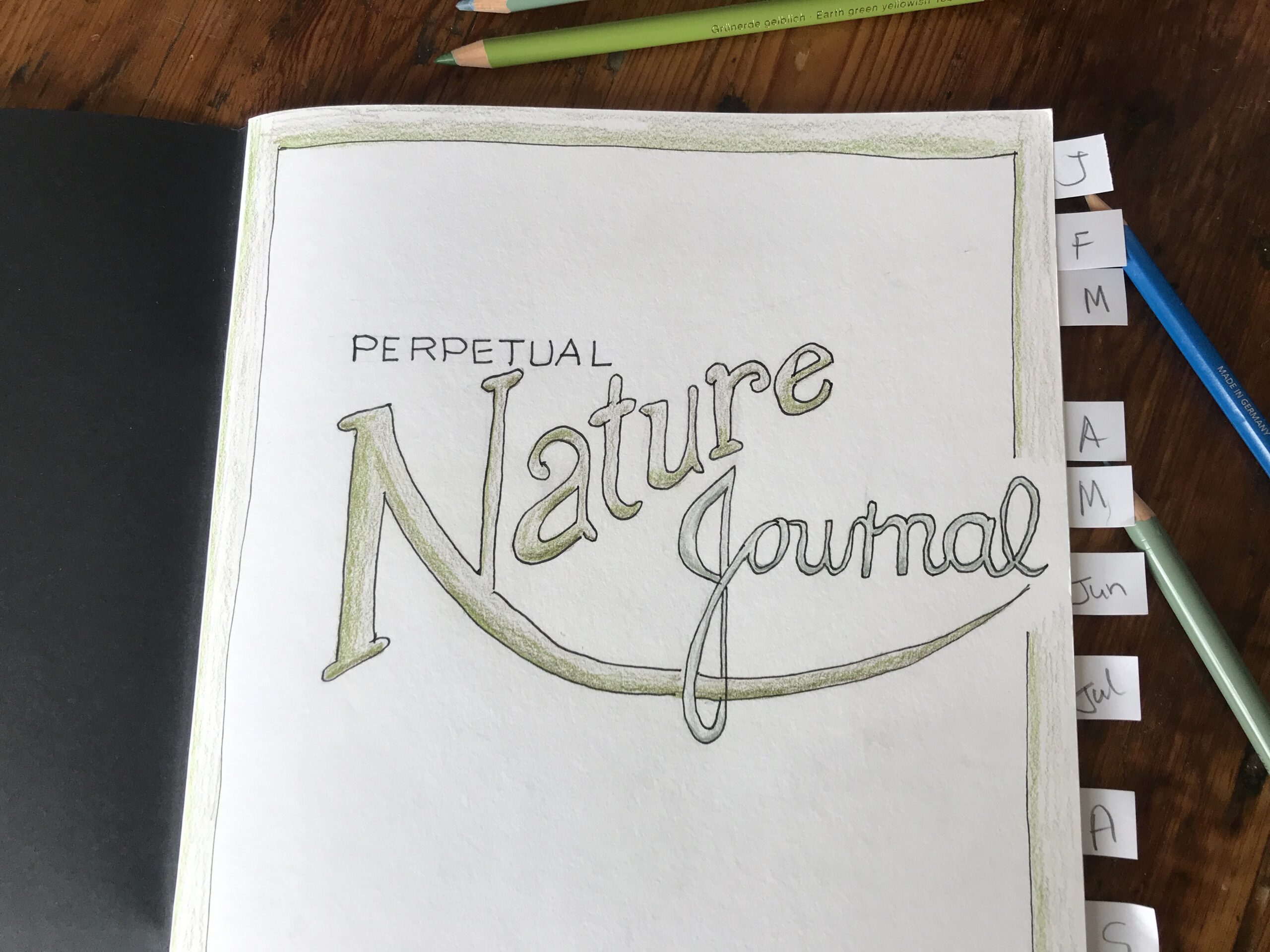
Perpetual Nature Journal 🌱 Setup and Cover Page
Inspiration The idea of having a Perpetual Nature Journal which is different to a normal nature journal is that rather than starting at the front and working towards the back, depending on where I went and what I saw, I will be focusing on one or two nature features...

Aspiring Artists
Discover what it takes to be an Aspiring Artist and see where you fit in and call yourself and artist. Some mind shifts may be required.
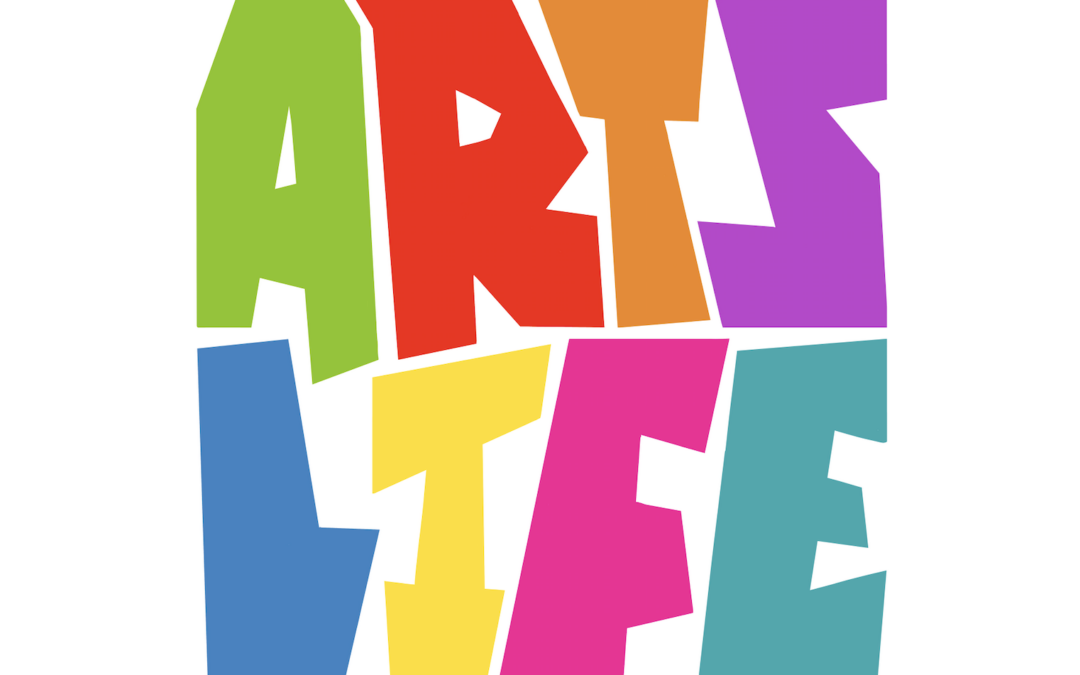
Artzlife Newsletter
Author: Alison Hazel - Published: December 2024 Artzlife Newsletter Creative art journal inspiration for hobby artists Welcome to a Place for Passionate Hobby Artists Are you a hobby artist seeking inspiration, connection and gentle guidance on your creative...


